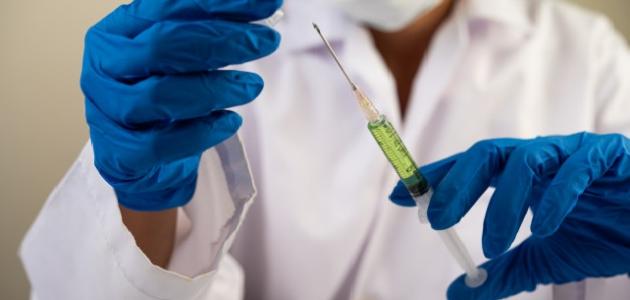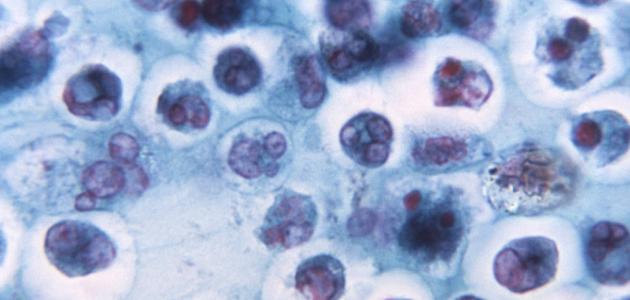bleeding
Bleeding is defined as the loss of blood, whether inside or outside the body. It may occur in any part of the body. Bleeding is considered internal when blood leaks through damaged blood vessels or organs. And when the blood comes out of a wound in the skin, or through a natural opening in the body; Like the mouth, vagina, rectum, or nose, bleeding is considered external, and bruising is considered bleeding under the skin. Some cases of bleeding, such as gastrointestinal bleeding, vaginal bleeding, or blood accompanying coughing, may be symptoms of other diseases. It should be noted that some cases of bleeding cause problems for the patient. As some strokes are caused by bleeding in the brain.
Causes of bleeding
Bleeding is a common symptom, and there are many causes and conditions that can cause bleeding, and in the following, this is explained.
Diseases and medical conditions
Among the diseases and health conditions that may cause bleeding for the injured person are the following:
- platelet deficiency: Blood is made up of several types of cells that float in a fluid called plasma. Blood cells include: red blood cells, white blood cells, and platelets. When a wound occurs in the skin, the platelets clump together, forming a thrombus to stop the bleeding. Therefore, in the event of a low platelet count (in English: Thrombocytopenia), the body cannot form thrombi, and the bleeding continues. Platelet deficiency may result from some diseases such as aplastic anemia, vitamin B12 deficiency, folic acid and iron deficiency, infection with HIV, exposure to radiation or toxic chemicals, cirrhosis, and others. .
- deficiency of clotting factors: Clotting factors are proteins that help the blood to clot, so a deficiency in one of them, such as Factor VII or Factor X, causes excessive bleeding or prolonged bleeding after an injury or surgery. The deficiency of clotting factors occurs as a result of the body not producing enough of them, or because diseases or medications interfere with their work.
- hemophilia: Hemophilia is a rare genetic disorder, and it is represented by the inability of the blood to clot normally because it lacks enough clotting factors, so the patient may bleed for a longer period after an injury, and it is a concern if it causes bleeding inside the body. , especially in the knees, ankles, and elbows; internal bleeding may cause damage to organs and tissues, and may be life-threatening.
- Threatened abortion: Threatened abortion can be defined as vaginal bleeding in the first twenty weeks of pregnancy, and about 20 to 30 percent of women are exposed to it. However, 50% of these women complete their pregnancy until delivery. Usually, the main cause of a threatened miscarriage is not fully known, but it is more common in women who have previously had a miscarriage, and it should be noted that bleeding can usually be accompanied by abdominal cramps, and thus a miscarriage is possible.
- Nonmenstrual uterine bleeding: Dysfunctional Uterine Bleeding is considered non-menstrual when it occurs outside the normal menstrual period, and usually occurs during puberty and menopause, and at any time when the balance of hormones in the female is disturbed. Medical conditions that cause abnormal uterine bleeding include polycystic ovary syndrome, endometriosis, uterine polyps, and some sexually transmitted diseases.
- Bleeding esophageal varices: When there is a shortage of blood flowing to the liver as a result of a blockage, the blood collects in the nearby blood vessels, including the esophageal veins, and to accommodate the amount of blood flowing to it, it expands and expands. : Bleeding Esophageal Varices), and this bleeding may be accompanied by symptoms that appear on the person such as hematemesis, stomach pain, black stools, or bloody stools in severe cases, and shock that expresses an excessive decrease in blood pressure as a result of blood loss
- peptic ulcer;They are ulcers that form in the lining of the stomach, lower esophagus, or small intestine, and usually occur as a result of inflammation caused by the stomach germ (Helicobacter pylori), as well as from erosion resulting from stomach acids, and may be caused by other factors such as smoking, drinking a lot of Alcohol, radiotherapy, stomach cancer, and others, and by not undergoing appropriate treatment, the patient may be exposed to complications of peptic ulcer, including internal bleeding.
- Ulcerative colitis: Which is considered an inflammatory bowel disease, and it occurs as a result of inflammation of the large intestine and rectum, causing small sores on the lining of the colon that may cause bleeding, and it usually starts in the rectum and spreads upwards, and it can affect the entire colon. Symptoms of ulcerative colitis include abdominal pain, increased abdominal sounds, bloody stools, diarrhea, rectal pain, weight loss, and malnutrition.
- Other medical conditions: Such as acute bronchitis, hemorrhoids, and severe hypothermia.
pharmacological treatments
Medications that may cause bleeding include:
Read also:Difficulty swallowing treatment- Blood thinners: Such as aspirin, clopidogrel, and warfarin.
- Some depression medications: Such as Citalopram, Escitalopram, Fluoxetine, Fluvoxamine, Paroxetine, and Sertraline.
- Some analgesic medications: Such as diclofenac, ibuprofen, indomethacin, ketoprofen, meloxicam, and naproxen.
- Herbal preparations: Such as ginkgo biloba, garlic when eaten in large quantities, fresh ginger, Asian ginseng, saw palmetto, and willow.
Other causes of bleeding
Other causes of bleeding include:
Read also:Coma causes- exposure to wounds when using sharp tools; Like knives and needles.
- Animal bites and bites.
- Exposure to fractures.









